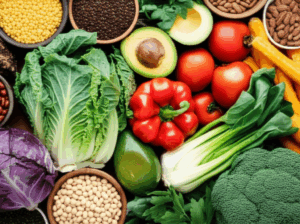Many women experience the frustrating cycle of dieting: restricting calories, feeling perpetually hungry, only to eventually give up and regain weight. The good news is that sustainable healthy eating for women doesn’t require deprivation or constant hunger. Instead, it’s about making informed, balanced choices that nourish your body, keep you satisfied, and support your overall well-being. This guide will help you develop a practical nutrition plan focused on feeling good, not just cutting calories.

Understanding Women’s Unique Nutritional Needs
While the fundamental principles of healthy eating apply to everyone, women have specific nutritional considerations that can influence their dietary needs. Factors like hormonal fluctuations, pregnancy, breastfeeding, and bone health often necessitate particular attention to certain nutrients. For instance, women particularly benefit from nutrients like calcium, iron, magnesium, and folate. Focusing on a balanced intake of macronutrients (protein, carbohydrates, and fats) and a wide array of micronutrients (vitamins and minerals) is crucial for managing energy levels, hormonal balance, and bone strength, without resorting to extreme restrictions that can lead to nutrient deficiencies, hormone imbalances, and exhaustion.
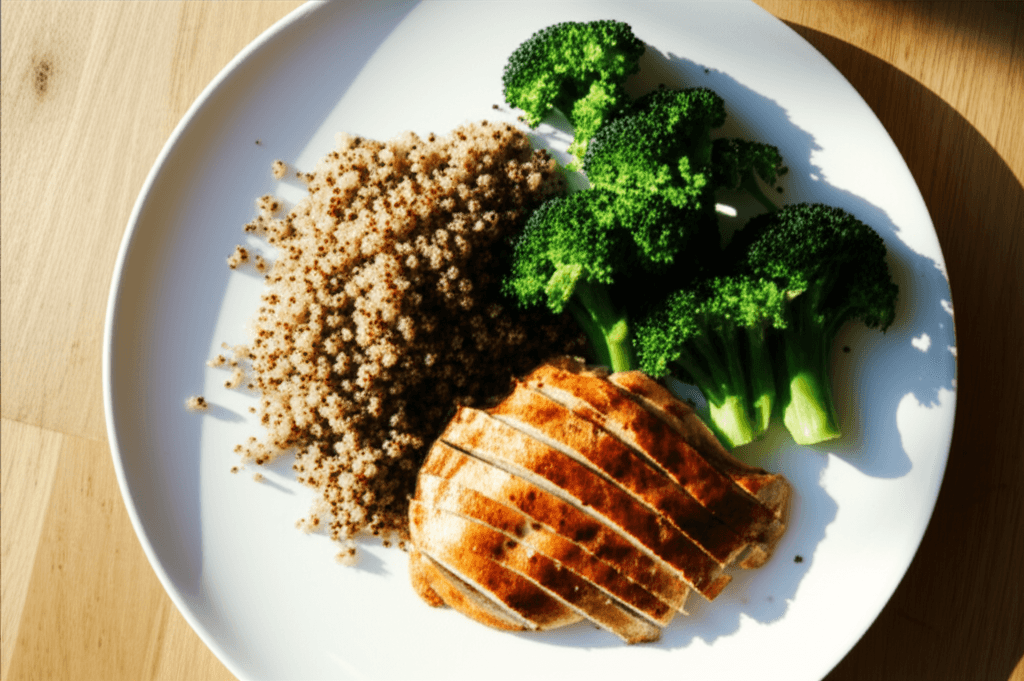
The Pillars of a Satisfying Plate: Macronutrients for Women
Macronutrients are the main components of food that provide energy in the form of calories: carbohydrates, proteins, and fats. A balanced intake of all three is essential for performance, health, and weight management, and individual needs can vary.
Protein: The Satiety Powerhouse
Protein is critical for women’s health, playing a vital role in muscle repair, hormone balance, and maintaining a feeling of fullness between meals. It’s the most satiating macronutrient, meaning it helps you feel fuller for longer, reduces appetite, and cuts cravings.
- Practical Tips: Aim to include a lean protein source at every meal and snack. Excellent choices include chicken, fish (like salmon, rich in omega-3s), eggs, lean meats, Greek yogurt, legumes, and tofu. For active women, protein needs may be higher, ranging from 1.2-2 grams per kilogram of body weight per day.
Healthy Fats: Essential for Hormones and Absorption
Fats often get a bad reputation, but healthy fats are absolutely essential for women. They are crucial for hormone production, nutrient absorption (especially fat-soluble vitamins A, D, E, and K), brain function, and maintaining satiety. Avoiding healthy fats is a common dieting mistake that can impede feelings of fullness and overall health.
- Practical Tips: Incorporate healthy unsaturated fats from sources like olive oil, avocados, nuts, seeds, and fatty fish. While healthy, fats are calorie-dense, so portion control is still important.
Complex Carbohydrates: Sustained Energy and Fiber
Carbohydrates are the body’s primary energy source, and cutting them out entirely is a common dieting error that can lead to depleted energy, impaired muscle recovery, and hormone interference. The key is choosing high-quality, complex carbohydrates rich in fiber. Fiber slows digestion, provides sustained energy, supports gut health, regulates blood sugar, and helps you feel fuller for longer.
- Practical Tips: Opt for whole grains (oats, quinoa, brown rice, whole-wheat bread), fruits, and a wide variety of vegetables and legumes. Pair carbs with protein or fat to stabilize blood sugar and prevent rapid spikes and drops that can lead to hunger and cravings.
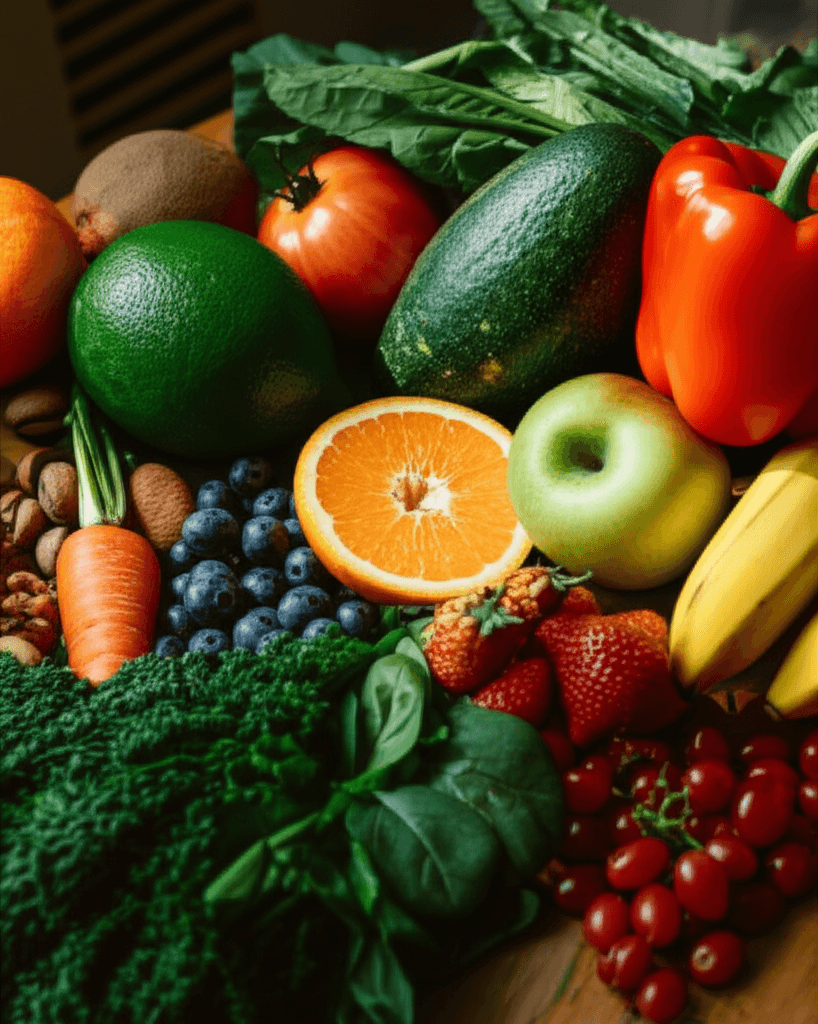
Beyond the Macros: Essential Micronutrients for Women
Micronutrients—vitamins and minerals—don’t provide calories but are vital for hundreds of bodily processes, including digestion, hormone production, bone strength, immunity, and brain function. Ignoring them in favor of just counting calories and protein can lead to hidden deficiencies.
- Calcium and Vitamin D: Crucial for bone health, especially as women age. Sources include dairy products, fortified plant milks, leafy greens, and fatty fish. Vitamin D is obtained from sun exposure and fortified foods.
- Iron: Many women, especially those of reproductive age, are at risk of iron deficiency. Iron is essential for energy levels and preventing anemia. Lean meats, beans, spinach, and fortified cereals are good sources.
- Folate (Vitamin B9): Important for cell division and particularly crucial during pregnancy to prevent birth defects. Found in leafy greens, legumes, and fortified grains.
- Magnesium: Aids in blood pressure regulation and muscle function. Rich sources include pumpkin seeds, almonds, and spinach.
- “Eat the Rainbow”: A simple trick to ensure a broad spectrum of micronutrients is to incorporate a variety of colorful fruits and vegetables into your diet. Each color often corresponds to different antioxidants and phytonutrients, offering protective effects for various bodily functions.

Practical Strategies to Eat Right Without Starving
Achieving a healthy diet without feeling hungry all the time involves strategic choices and mindful habits.
Focus on Nutrient-Dense Whole Foods
Prioritize foods high in essential nutrients like vitamins, minerals, and fiber, while being relatively low in calories. These foods keep you full, energized, and satisfied. Think fresh produce, whole grains, lean proteins, and healthy fats instead of highly processed foods, which are often loaded with refined carbohydrates, salt, hidden sugars, and empty calories that can increase blood sugar and make you hungrier.
Embrace Fiber-Rich Foods
Fiber is your ally against hunger. It slows digestion, adds bulk to meals, and promotes feelings of fullness.
- How to: Load up on vegetables, fruits, whole grains (like oats and quinoa), legumes (beans, lentils), nuts, and seeds.
Prioritize Protein at Every Meal
As the most satiating macronutrient, protein helps curb hunger and cravings effectively.
- How to: Ensure each meal contains a substantial source of lean protein. For example, eggs or Greek yogurt for breakfast, chicken or tuna in a salad for lunch, and fish or legumes with dinner.
Don’t Fear Healthy Fats
Healthy fats are crucial for satiety and overall health.
- How to: Include avocados, nuts, seeds, and olive oil in moderation. These fats slow digestion and provide lasting satisfaction. Be mindful of portion sizes, as healthy fats are calorie-dense.
Hydration is Key
Drinking enough water is often overlooked but plays a critical role in weight management and appetite control. Sometimes, thirst can be mistaken for hunger, leading to unnecessary snacking.
- How to: Aim for at least 8-10 glasses of water a day. Drink a glass before meals to help reduce calorie intake. Choose water or low-calorie herbal teas over sugary drinks.
Mindful Eating
Mindful eating involves being present and paying attention to your body’s hunger and fullness cues. This can help you enjoy your food more and avoid overeating.
- How to: Eat slowly, chew thoroughly, and put your fork down between bites. Turn off distractions like your phone or TV during meals. Pause midway through your meal to assess if you’re still hungry.
Smart Snacking
Snacks can be an essential part of a healthy diet, preventing extreme hunger that can lead to overeating at main meals.
- How to: Choose snacks that are filling and provide good nutrition for the calories. Options like a handful of almonds, an apple with peanut butter, or Greek yogurt with berries can be excellent choices.
Meal Planning & Preparation
Planning your meals and preparing food at home allows for greater control over ingredients and portions, leading to healthier choices than eating out.
- How to: Dedicate time each week to plan your meals and create a shopping list. Batch cook components like grilled chicken, roasted vegetables, or quinoa to use in various meals throughout the week. Keep meals simple with easy recipes focusing on healthy versions of your favorite foods.
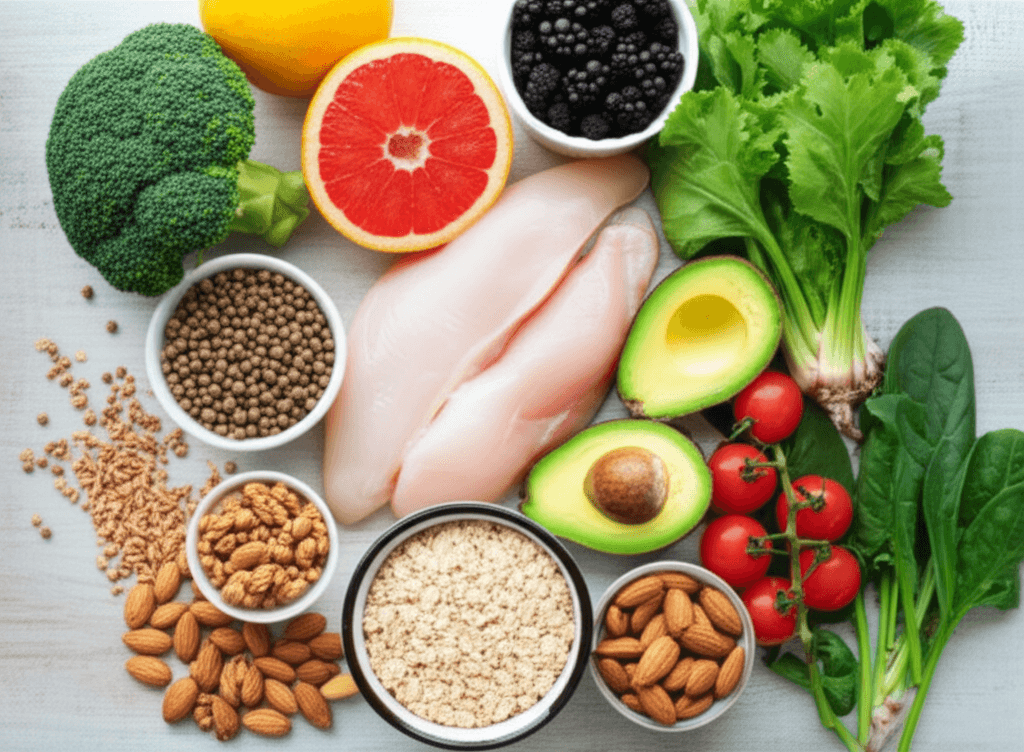
Common Pitfalls to Avoid in Women’s Nutrition
Several common mistakes can derail a woman’s nutrition efforts and lead to feeling starved or frustrated:
- Skipping Meals: Especially breakfast, can slow metabolism, lead to extreme hunger later, and increase the likelihood of overeating or making poor food choices. Regular, balanced meals help keep metabolism steady and prevent blood sugar crashes.
- Over-reliance on “Low-Calorie” or “Diet” Foods: Many so-called “diet-friendly” snacks are packed with refined carbohydrates, salt, and hidden sugars, which can actually increase blood sugar levels and make you feel hungrier. Focus on nutrient-dense whole foods instead.
- Drastic Calorie Restriction: Cutting calories too dramatically can lower your metabolism, cause fatigue, moodiness, and make you more prone to losing muscle rather than fat. It often leads to a “starvation mode” where the body stores more fat and burns less energy. Sustainable weight loss happens gradually, typically 1-2 pounds per week.
- Eliminating Entire Food Groups: Severely restricting carbohydrates or fats can lead to nutrient deficiencies, hormonal imbalances, and an unhealthy relationship with food. A balanced approach that includes all macronutrients is crucial.
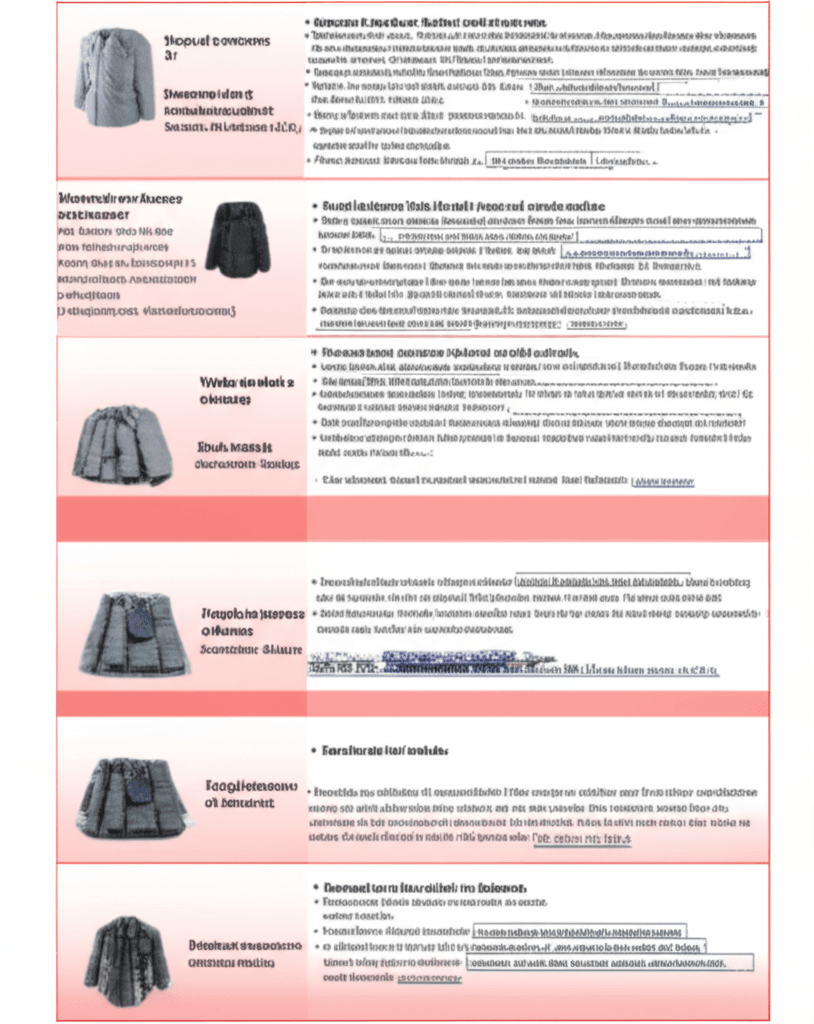
Building Sustainable Habits for Long-Term Success
Sustainable nutrition isn’t about rigid rules or striving for perfection; it’s about making small, consistent changes that fit into your lifestyle and can be maintained long-term.
- Consistency is Key: Sticking to a routine of balanced meals, adequate hydration, and healthy habits will yield sustainable results over time.
- Listen to Your Body: Pay attention to your hunger and fullness cues. Eat when genuinely hungry and stop when satisfied, not stuffed.
- Seek Professional Guidance: If you have underlying medical conditions (like hypothyroidism, PCOS, or insulin resistance) that impact weight or metabolism, consult a healthcare professional or Registered Dietitian for personalized advice.
- Focus on Overall Health: Remember that weight loss is one indicator of health, but body composition and overall well-being are equally important.
By focusing on nutrient-dense foods, balancing your macronutrients, staying hydrated, and adopting mindful eating practices, women can create a practical nutrition plan that supports their health goals without ever feeling starved. This approach fosters a positive relationship with food, leading to lasting energy, vitality, and confidence in your dietary choices.



